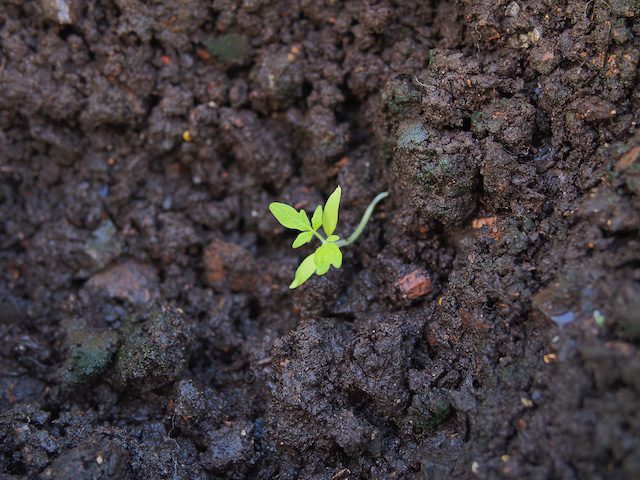We often think of composting in the fall–which is a great time to start a bin–or even the spring when temperatures begin to rise and the composting process starts to develop that rich soil we love to use for planting. But, what about summer?
Experts agree that the key to optimal compost development is having the right amount of water, greens (grass clippings, vegetable waste, fruit scraps) and browns (dead leaves, branches, and twigs)—so even though summer is usually heavy on the “greens”, there are ways to keep the combination working even during the dry, hot months of June, July and August.
Placement of your composting pile or bin is key. You should select a dry, shady area that is close to a water source like a hose. If you feel your pile is too dry (it should always feel slightly damp—not wet or dry), hose down each new layer as you add it to the bin. You should also consider placing a tarp or lid over your pile to conserve moisture during dry periods—this also prevents water logging should you have several days of heavy rain.
While green materials are plentiful during the summer months, you may be struggling to find enough carbon—or brown—composting materials. Look for fallen leaves or old straw mulch as well as other debris like wood chips, peanut shells or even shredded newspaper. Shredding your materials prior to adding them to the pile will speed up the breakdown process.
Is your pile beginning to smell? This may be of great concern if you are composting in a small space. The foul odor is probably caused by adding too much “green” or too much water. If you are detecting an odor, add more brown material to the mix which should help fix the situation.
You will see bugs in your compost—especially during the summer. Bugs like worms, centipedes and pill bugs are all part of the composting process and should be left alone. To keep unwanted pests such as cockroaches out of your pile, make sure your bin has a lid with small air holes and turn food scraps into the pile as you add them, burying them deep beneath your yard trimmings.
Still new to the idea of composting? Since fall is the perfect time to begin the composting process, summer is the perfect time to get yourself educated. If you live in New York, contact the NYC Compost Project in your borough for a list of indoor and outdoor composting workshops.
Talk to us: Are you an indoor or outdoor composter?

